RBS 2011 Annual Report Download - page 240
Download and view the complete annual report
Please find page 240 of the 2011 RBS annual report below. You can navigate through the pages in the report by either clicking on the pages listed below, or by using the keyword search tool below to find specific information within the annual report.-
 1
1 -
 2
2 -
 3
3 -
 4
4 -
 5
5 -
 6
6 -
 7
7 -
 8
8 -
 9
9 -
 10
10 -
 11
11 -
 12
12 -
 13
13 -
 14
14 -
 15
15 -
 16
16 -
 17
17 -
 18
18 -
 19
19 -
 20
20 -
 21
21 -
 22
22 -
 23
23 -
 24
24 -
 25
25 -
 26
26 -
 27
27 -
 28
28 -
 29
29 -
 30
30 -
 31
31 -
 32
32 -
 33
33 -
 34
34 -
 35
35 -
 36
36 -
 37
37 -
 38
38 -
 39
39 -
 40
40 -
 41
41 -
 42
42 -
 43
43 -
 44
44 -
 45
45 -
 46
46 -
 47
47 -
 48
48 -
 49
49 -
 50
50 -
 51
51 -
 52
52 -
 53
53 -
 54
54 -
 55
55 -
 56
56 -
 57
57 -
 58
58 -
 59
59 -
 60
60 -
 61
61 -
 62
62 -
 63
63 -
 64
64 -
 65
65 -
 66
66 -
 67
67 -
 68
68 -
 69
69 -
 70
70 -
 71
71 -
 72
72 -
 73
73 -
 74
74 -
 75
75 -
 76
76 -
 77
77 -
 78
78 -
 79
79 -
 80
80 -
 81
81 -
 82
82 -
 83
83 -
 84
84 -
 85
85 -
 86
86 -
 87
87 -
 88
88 -
 89
89 -
 90
90 -
 91
91 -
 92
92 -
 93
93 -
 94
94 -
 95
95 -
 96
96 -
 97
97 -
 98
98 -
 99
99 -
 100
100 -
 101
101 -
 102
102 -
 103
103 -
 104
104 -
 105
105 -
 106
106 -
 107
107 -
 108
108 -
 109
109 -
 110
110 -
 111
111 -
 112
112 -
 113
113 -
 114
114 -
 115
115 -
 116
116 -
 117
117 -
 118
118 -
 119
119 -
 120
120 -
 121
121 -
 122
122 -
 123
123 -
 124
124 -
 125
125 -
 126
126 -
 127
127 -
 128
128 -
 129
129 -
 130
130 -
 131
131 -
 132
132 -
 133
133 -
 134
134 -
 135
135 -
 136
136 -
 137
137 -
 138
138 -
 139
139 -
 140
140 -
 141
141 -
 142
142 -
 143
143 -
 144
144 -
 145
145 -
 146
146 -
 147
147 -
 148
148 -
 149
149 -
 150
150 -
 151
151 -
 152
152 -
 153
153 -
 154
154 -
 155
155 -
 156
156 -
 157
157 -
 158
158 -
 159
159 -
 160
160 -
 161
161 -
 162
162 -
 163
163 -
 164
164 -
 165
165 -
 166
166 -
 167
167 -
 168
168 -
 169
169 -
 170
170 -
 171
171 -
 172
172 -
 173
173 -
 174
174 -
 175
175 -
 176
176 -
 177
177 -
 178
178 -
 179
179 -
 180
180 -
 181
181 -
 182
182 -
 183
183 -
 184
184 -
 185
185 -
 186
186 -
 187
187 -
 188
188 -
 189
189 -
 190
190 -
 191
191 -
 192
192 -
 193
193 -
 194
194 -
 195
195 -
 196
196 -
 197
197 -
 198
198 -
 199
199 -
 200
200 -
 201
201 -
 202
202 -
 203
203 -
 204
204 -
 205
205 -
 206
206 -
 207
207 -
 208
208 -
 209
209 -
 210
210 -
 211
211 -
 212
212 -
 213
213 -
 214
214 -
 215
215 -
 216
216 -
 217
217 -
 218
218 -
 219
219 -
 220
220 -
 221
221 -
 222
222 -
 223
223 -
 224
224 -
 225
225 -
 226
226 -
 227
227 -
 228
228 -
 229
229 -
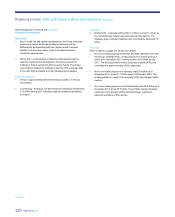 230
230 -
 231
231 -
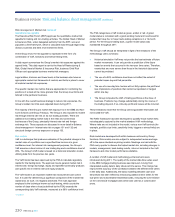 232
232 -
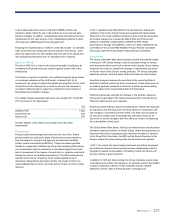 233
233 -
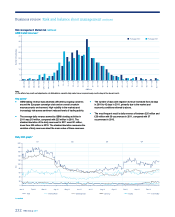 234
234 -
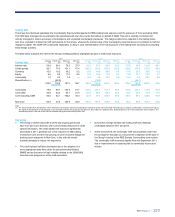 235
235 -
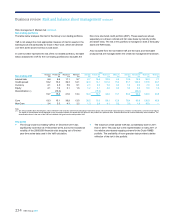 236
236 -
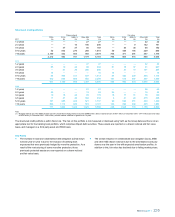 237
237 -
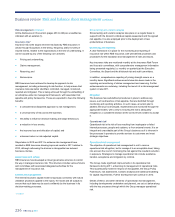 238
238 -
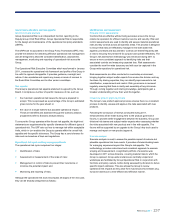 239
239 -
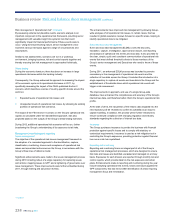 240
240 -
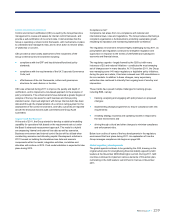 241
241 -
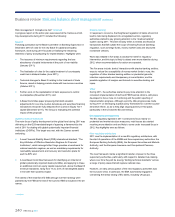 242
242 -
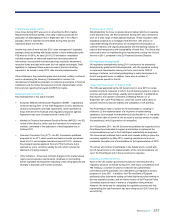 243
243 -
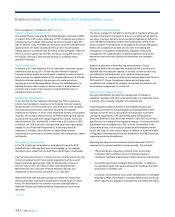 244
244 -
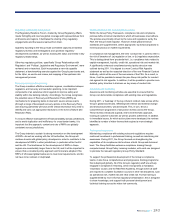 245
245 -
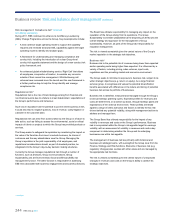 246
246 -
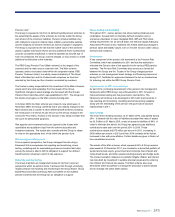 247
247 -
 248
248 -
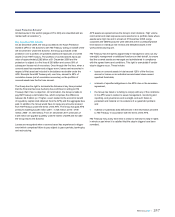 249
249 -
 250
250 -
 251
251 -
 252
252 -
 253
253 -
 254
254 -
 255
255 -
 256
256 -
 257
257 -
 258
258 -
 259
259 -
 260
260 -
 261
261 -
 262
262 -
 263
263 -
 264
264 -
 265
265 -
 266
266 -
 267
267 -
 268
268 -
 269
269 -
 270
270 -
 271
271 -
 272
272 -
 273
273 -
 274
274 -
 275
275 -
 276
276 -
 277
277 -
 278
278 -
 279
279 -
 280
280 -
 281
281 -
 282
282 -
 283
283 -
 284
284 -
 285
285 -
 286
286 -
 287
287 -
 288
288 -
 289
289 -
 290
290 -
 291
291 -
 292
292 -
 293
293 -
 294
294 -
 295
295 -
 296
296 -
 297
297 -
 298
298 -
 299
299 -
 300
300 -
 301
301 -
 302
302 -
 303
303 -
 304
304 -
 305
305 -
 306
306 -
 307
307 -
 308
308 -
 309
309 -
 310
310 -
 311
311 -
 312
312 -
 313
313 -
 314
314 -
 315
315 -
 316
316 -
 317
317 -
 318
318 -
 319
319 -
 320
320 -
 321
321 -
 322
322 -
 323
323 -
 324
324 -
 325
325 -
 326
326 -
 327
327 -
 328
328 -
 329
329 -
 330
330 -
 331
331 -
 332
332 -
 333
333 -
 334
334 -
 335
335 -
 336
336 -
 337
337 -
 338
338 -
 339
339 -
 340
340 -
 341
341 -
 342
342 -
 343
343 -
 344
344 -
 345
345 -
 346
346 -
 347
347 -
 348
348 -
 349
349 -
 350
350 -
 351
351 -
 352
352 -
 353
353 -
 354
354 -
 355
355 -
 356
356 -
 357
357 -
 358
358 -
 359
359 -
 360
360 -
 361
361 -
 362
362 -
 363
363 -
 364
364 -
 365
365 -
 366
366 -
 367
367 -
 368
368 -
 369
369 -
 370
370 -
 371
371 -
 372
372 -
 373
373 -
 374
374 -
 375
375 -
 376
376 -
 377
377 -
 378
378 -
 379
379 -
 380
380 -
 381
381 -
 382
382 -
 383
383 -
 384
384 -
 385
385 -
 386
386 -
 387
387 -
 388
388 -
 389
389 -
 390
390 -
 391
391 -
 392
392 -
 393
393 -
 394
394 -
 395
395 -
 396
396 -
 397
397 -
 398
398 -
 399
399 -
 400
400 -
 401
401 -
 402
402 -
 403
403 -
 404
404 -
 405
405 -
 406
406 -
 407
407 -
 408
408 -
 409
409 -
 410
410 -
 411
411 -
 412
412 -
 413
413 -
 414
414 -
 415
415 -
 416
416 -
 417
417 -
 418
418 -
 419
419 -
 420
420 -
 421
421 -
 422
422 -
 423
423 -
 424
424 -
 425
425 -
 426
426 -
 427
427 -
 428
428 -
 429
429 -
 430
430 -
 431
431 -
 432
432 -
 433
433 -
 434
434 -
 435
435 -
 436
436 -
 437
437 -
 438
438 -
 439
439 -
 440
440 -
 441
441 -
 442
442 -
 443
443 -
 444
444 -
 445
445 -
 446
446 -
 447
447 -
 448
448 -
 449
449 -
 450
450 -
 451
451 -
 452
452 -
 453
453 -
 454
454 -
 455
455 -
 456
456 -
 457
457 -
 458
458 -
 459
459 -
 460
460 -
 461
461 -
 462
462 -
 463
463 -
 464
464 -
 465
465 -
 466
466 -
 467
467 -
 468
468 -
 469
469 -
 470
470 -
 471
471 -
 472
472 -
 473
473 -
 474
474 -
 475
475 -
 476
476 -
 477
477 -
 478
478 -
 479
479 -
 480
480 -
 481
481 -
 482
482 -
 483
483 -
 484
484 -
 485
485 -
 486
486 -
 487
487 -
 488
488 -
 489
489 -
 490
490
 |
 |

238 RBS Group 2011
Risk management: Operational risk* continued
By assessing extreme but plausible events, scenario analysis is an
important component in the operational risk framework, providing senior
management with valuable insight into systemic risk that could
significantly impact its financial performance if these events were to
occur. Using its forward-looking nature, senior management cross-
examines various risk topics against a range of circumstances and
assumptions.
Similar to risk assessments, scenarios are run in a workshop
environment, bringing business, risk and control experts together and
thereby ensuring that risk management is approached holistically.
Stress testing
During the economic downturn, there has been an increase in large
operational risk losses within the banking industry.
Consequently, the Group enhanced its approach to assessing the impact
of the economic cycle on its operational risk losses in 2011, by
specifically assessing the impact of the FSA's published Anchor II
scenario, which describes a series of country-specific shocks around the
world on:
xExpected levels of operational risk losses; and
xUnexpected levels of operational risk losses, by stressing its existing
portfolio of operational risk scenarios.
The impact of the FSA Anchor II scenario on the Group's operational risk
capital, as calculated under the standardised approach, was also
projected based on the outputs of the Group’s stress-testing exercises.
During 2012, additional operational risk scenarios will be run, further
broadening the Group's understanding of its exposures to tail risks.
Management, monitoring and reporting
Issues management
The objective of the operational risk issues management framework is
the adoption of a consistent approach to the identification, capture,
classification, monitoring, closure and acceptance of operational risk
issues and associated actions across the Group, in accordance with the
Group’s three lines of defence model.
Significant enhancements were made to the issues management process
during 2010 including rollout of a single repository for capturing issues
and actions; mapping issues to GPF; and a tightening of governance over
issue management. These improvements were further embedded during
2011, through training and assurance reviews.
The enhancements have improved risk management by allowing Group-
wide analyses of all operational risk issues. In certain cases, this has
resulted in global assurance reviews focused on specific areas, helping to
identify operational risks to be mitigated.
Event and loss data management
Event and loss data management (ELDM) covers the discovery,
escalation, capture, investigation, approval and closure, and reporting
and analysis of operational risk events and loss data. It also provides for
the clear, simple, quick and consistent communication of operational risk
events that meet defined threshold criteria to those members of the
Group’s senior management and Executives who need to know of these
events.
During 2011, an enhanced EDLM process was launched to promote
consistency in the management of operational risk events and the
collection of loss data across the Group. It included the introduction of a
single repository to capture all events and loss data in the Group and the
establishment of thresholds above which operational risk events will
trigger a risk assessment.
The improvements in approach, and use of a single Group-wide
database, have enhanced the completeness and accuracy of the Group’s
internal loss data, and therefore better inform the Group’s operational risk
profile.
At the start of 2012, the robustness of the historic data migrated into the
new repository will be reviewed to confirm its suitability as an input to
capital modelling. In addition, the process will be further enhanced to
ensure continued compliance with changing regulatory and industry
standards regarding the collection of internal loss data.
Insurance
The Group purchases insurance to provide the business with financial
protection against specific losses and to comply with statutory or
contractual requirements. Insurance is used as a risk mitigation tool in
controlling the Group’s exposures, providing protection against financial
loss once a risk has crystallised.
Reporting and monitoring
Reporting and monitoring forms an integral part of all of the Group’s
operational risk management processes, which are designed to ensure
that risks and issues are identified, escalated and managed on a timely
basis. Exposures for each division are reported through monthly risk and
control reports, which provide detail on the risk exposures and action
plans. Enhancements made to reporting and monitoring during the year
include analysing operational risk events, losses and issues against the
GPF components; this has led to better identification of areas requiring
management focus and remediation.
*unaudited
Business review Risk and balance sheet management continued
